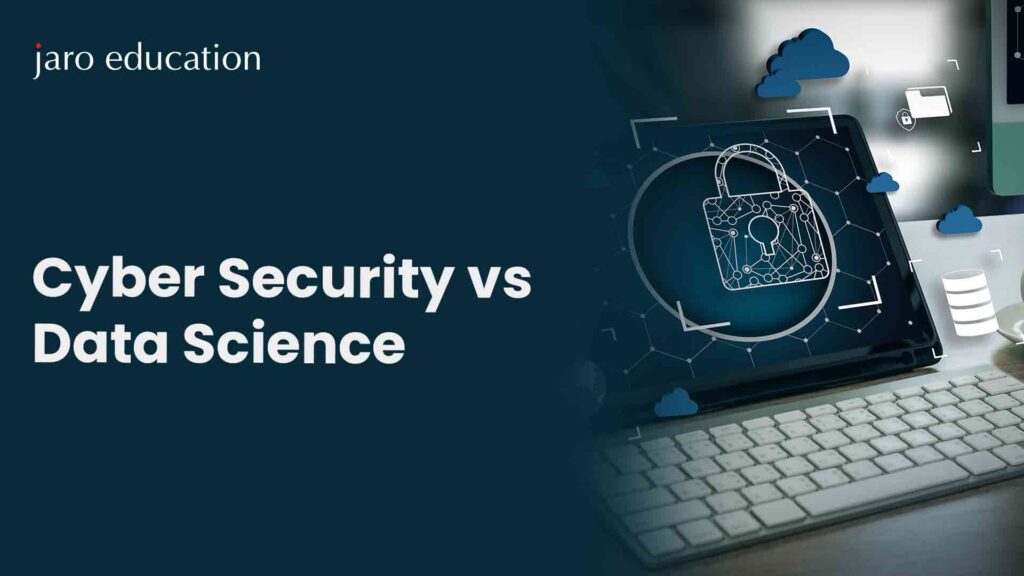In today’s fast-paced tech world, two career paths are standing out as particularly promising—data analytics and cyber security. As the IT industry continues to evolve rapidly, these fields have gained significant attention due to their crucial roles in handling data and safeguarding digital infrastructure.
If you’re a student, a recent graduate, or someone looking to pivot into a new tech career, deciding between data analytics and cyber security can be challenging. Both offer strong career opportunities, but they cater to different skill sets and professional goals.
This guide explores the core differences between data analytics and cyber security, covering everything from job roles to future prospects, helping you decide which path aligns best with your interests and career goals.
What Is Data Analytics?
Data analytics is a subset of data science that focuses on extracting actionable insights from raw data. This field plays a vital role in enhancing organisational decision-making processes by identifying trends, patterns, and relationships within data sets.
Key functions of data analytics include:
- Collecting and processing large data sets.
- Analysing structured and unstructured data to derive insights.
- Visualising data through charts and graphs to aid decision-making.
Businesses use data analytics to make informed decisions, improve operational efficiency, and gain a competitive advantage. It’s widely used across industries like finance, healthcare, marketing, and e-commerce.
What Is Cyber Security?
Cyber security is all about protecting sensitive information and organisational networks from unauthorised access, cyber-attacks, and data breaches. It ensures that confidential data remains secure and inaccessible to malicious actors.
Primary responsibilities in cyber security include:
- Implementing security protocols to safeguard information.
- Monitoring networks for vulnerabilities and potential threats.
- Responding to cyber-attacks and preventing data breaches.
Cyber security professionals act as digital gatekeepers, ensuring that sensitive data remains safe from cybercriminals and unauthorised personnel.
⚖️ Key Differences Between Data Analytics and Cyber Security
While both fields deal with data, their core functions and objectives differ significantly. Here’s how:
| Aspect | Data Analytics | Cyber Security |
| Primary Focus | Extracting insights from data | Protecting data from cyber threats |
| Main Objective | Help businesses make informed decisions | Safeguard sensitive data and networks |
| Skills Needed | Data visualisation, statistical analysis | Threat detection, security protocols |
| Common Tools | Excel, Python, Tableau, SQL | Firewalls, intrusion detection systems, VPNs |
| Industry Usage | Business, finance, healthcare | IT, finance, government, healthcare |
Educational Requirements
The educational paths for both careers differ based on the technical expertise and depth of knowledge required:
- Data Analytics:
A strong background in mathematics, statistics, and computer science is essential. While some entry-level positions are accessible with a bachelor’s degree, advancing in the field often requires a master’s degree. - Cyber Security:
A bachelor’s degree in IT, computer science, or a related field typically suffices for entry-level roles. While higher education can be beneficial, hands-on experience and relevant certifications (like CISSP or CompTIA Security+) often carry more weight.
Career Roles and Responsibilities
Here’s a breakdown of typical roles in both fields:
| Data Analytics Roles | Cyber Security Roles |
| Data Analyst | Security Analyst |
| Business Intelligence Analyst | Network Security Engineer |
| Data Scientist | Cyber Security Engineer |
| Machine Learning Specialist | Ethical Hacker |
In data analytics, professionals focus on gathering and interpreting data to improve business decisions. Cyber security experts, on the other hand, are responsible for protecting information systems and preventing cyber-attacks.
Future Career Prospects
Both fields offer strong future growth potential, but their trajectories differ slightly.
- Data Analytics Growth:
The rise of big data means companies are constantly looking for ways to leverage customer data. According to the US Bureau of Labor Statistics, data science is projected to grow by 28% by 2026, making it one of the fastest-growing fields. - Cyber Security Growth:
With the increasing number of cyber threats, demand for cyber security professionals remains consistently high. As long as digital systems exist, businesses will need security experts to protect their infrastructure from cybercriminals.
Salary Expectations
Salaries vary depending on factors such as location, experience, and level of education. Here’s a comparison of average salaries:
| Role | Average Salary (USD/year) |
| Data Analyst | $65,000 – $90,000 |
| Data Scientist | $95,000 – $135,000 |
| Cyber Security Analyst | $75,000 – $110,000 |
| Cyber Security Engineer | $90,000 – $140,000 |
Both fields offer competitive salaries, with higher potential earnings as professionals gain more experience and certifications.
Which Career Path Should You Choose?
Both careers offer exciting opportunities, but the choice ultimately depends on your interests and skills:
- Choose Data Analytics if:
- You enjoy working with numbers, patterns, and visualising data.
- You’re passionate about helping businesses make data-driven decisions.
- You’re interested in roles that involve statistics, machine learning, or AI.
- Choose Cyber Security if:
- You’re passionate about protecting digital assets and fighting cybercrime.
- You enjoy problem-solving and thinking like a hacker to prevent attacks.
- You thrive in high-pressure environments where quick decision-making is critical.
✅ Final Thoughts
Both data analytics and cyber security offer rewarding career paths with excellent job security, competitive salaries, and opportunities for growth. As businesses increasingly rely on technology and data, demand for professionals in both fields will continue to rise.
Deciding between the two comes down to your personal strengths and professional interests. Whether you choose to uncover valuable insights from data or protect critical systems from cyber threats, both paths promise a fulfilling and impactful career.
Found this guide helpful? Don’t forget to like, share, and subscribe for more insightful content on building your tech career!


